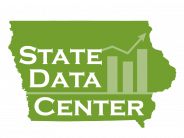Economic Census
About the Economic Census
Every five years, the U.S. Census Bureau collects extensive statistics about businesses that are essential to understanding the American economy. This official count, better known as the Economic Census, serves as the foundation for the measurement of U.S. businesses and their economic impact. As part of the Census Bureau’s mission to provide timely information on the health of the U.S. economy, this “business” census serves as the most extensive collection of data related to business activity. Nearly 4 million business locations, large, medium, and small, covering most industries and all geographic areas of the United States will receive surveys tailored to their primary business activity.
Coverage and Content
The statistical unit for economic census programs is the "establishment", which is a business or industrial unit at a single-physical location that produces or distributes goods or performs services
- The census covers retail trade; wholesale trade; service industries; construction industries; transportation, communications, and utilities; financial, insurance, and real estate; manufactures; and mineral industries;
- The census includes special programs and surveys of enterprise statistics, women- and minority-owned business enterprises, and characteristics of business owners.
- All establishments provide type-of-business activity, physical location, form of ownership, dollar volume of business, number of employees, and amount of payroll.
- Other industry-specific questions are asked depending upon the type of activity or industry.
Legal Authority and Confidentiality
Response is required by law. Title 13, United States Code (U.S.C.), Section 131, authorizes the survey by requiring businesses and other organizations included in the survey to answer the questions and submit a response. Sections 224 and 225 require businesses and other organizations that receive this questionnaire to answer the questions and return the report to the U.S. Census Bureau.
By Section 9 of the same law, the information that businesses and other organizations provide is confidential. It may be seen only by persons sworn to uphold the confidentiality of Census Bureau information and may be used only for statistical purposes. Further, copies retained in respondents’ files are immune from legal process.
Why is it Important?
The data produced from the Economic Census are important for your industry, your community, and your business:
• Statistics from the Economic Census provide policymakers with the evidence based information used to make sound programmatic decisions.
• Other Census Bureau economic surveys use Economic Census data to construct their sampling frames and to improve accuracy of annual, quarterly, and monthly estimates.
• Federal agencies rely on the data as the basis for key measures of economic activity, such as the Gross Domestic Product (GDP), National Income and Product Accounts (NIPAs), and the Producer Price Index (PPI).
• Trade and Business associations, along with Chambers of Commerce, rely on Economic Census data to measure key business facts they can use to gauge organizational structure and product trends.
• Individual businesses use the data from the Economic Census to make decisions about operating sites, capital investments, and product development.
For more information about economic censuses from the Census Bureau:
